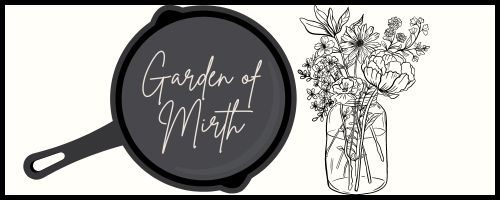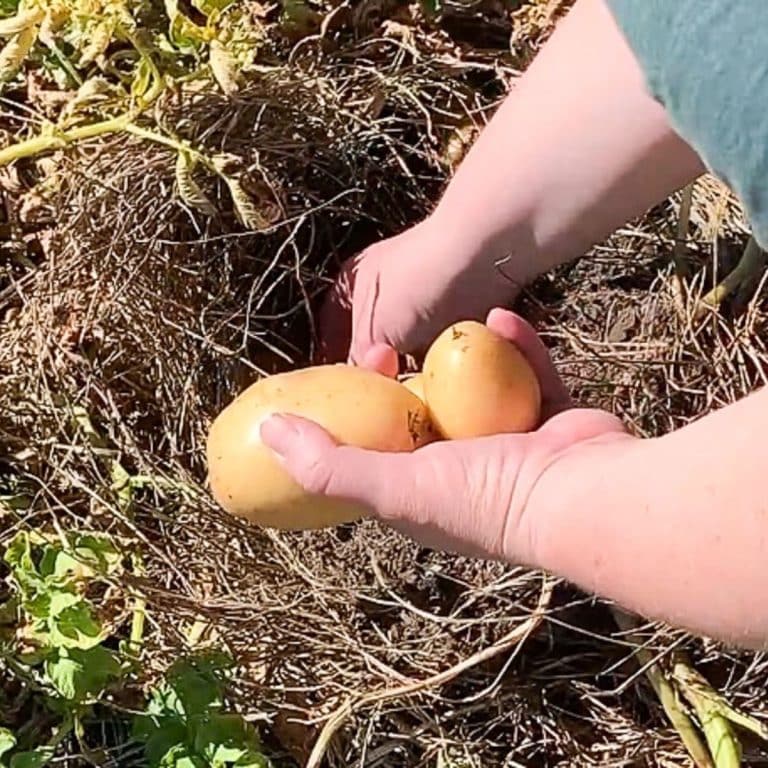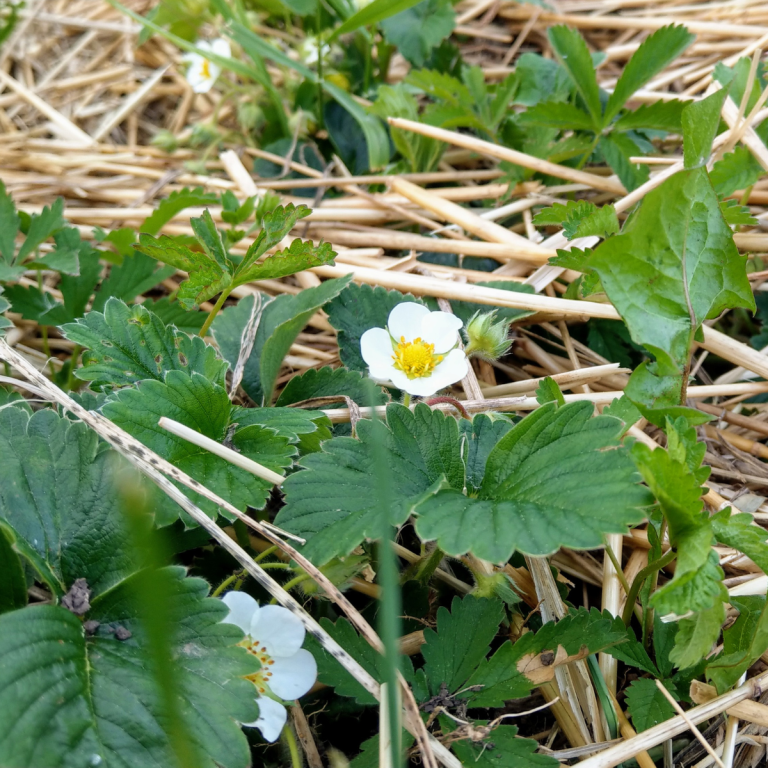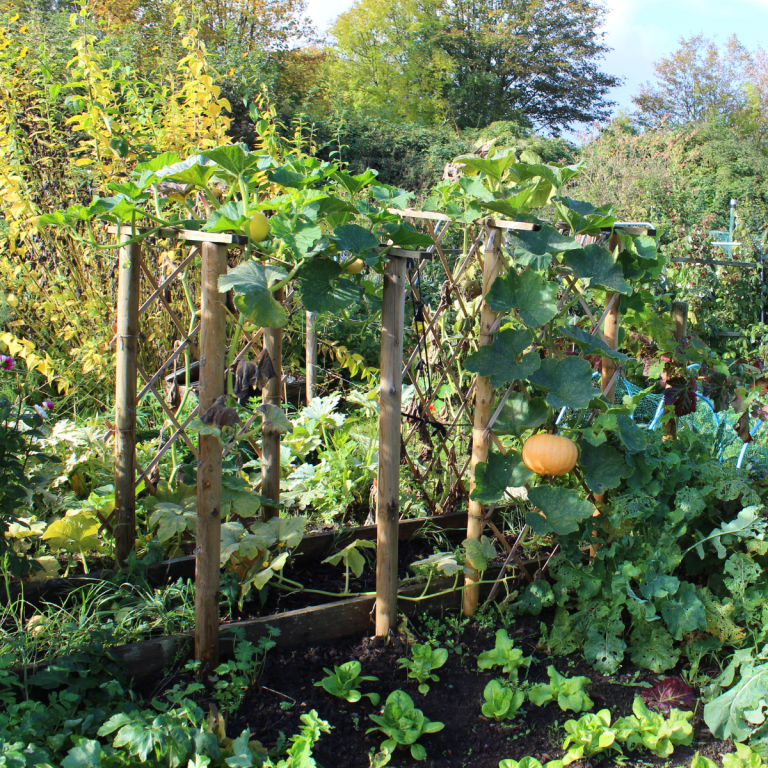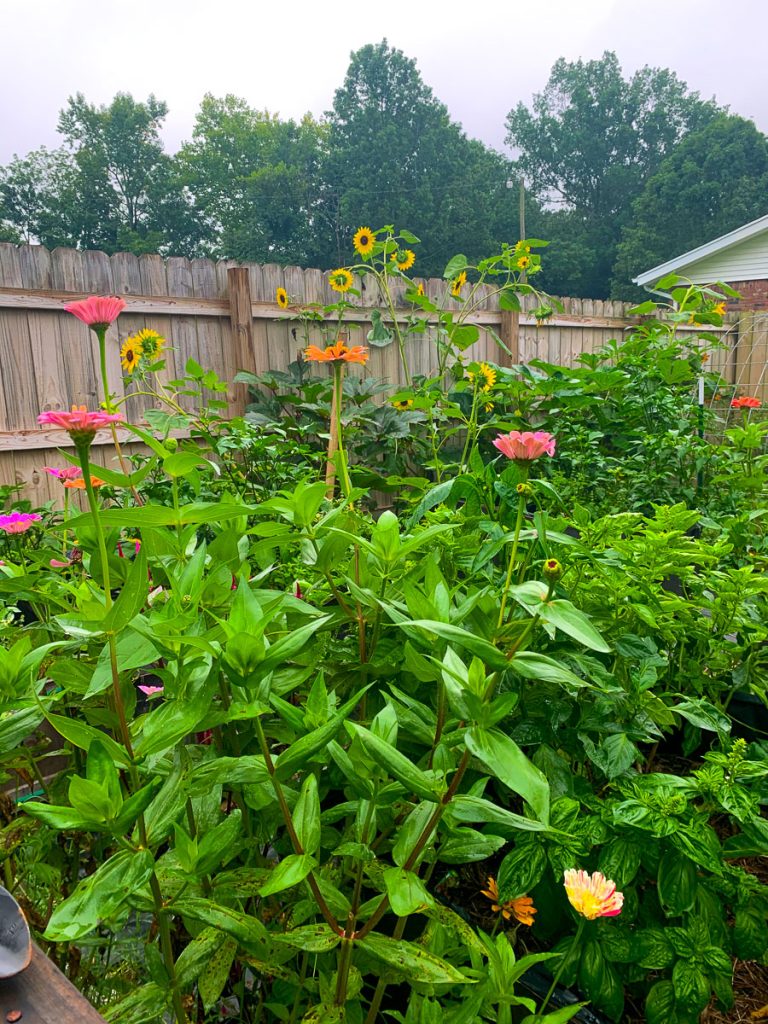Wood Mulch vs. Hay: Which is Better for Your Garden?
Last Updated on May 2, 2025 by Stephanie Gilpin
When it comes to mulching your vegetable garden, cut flower garden, or landscaping choosing the right type of mulch can make all the difference.
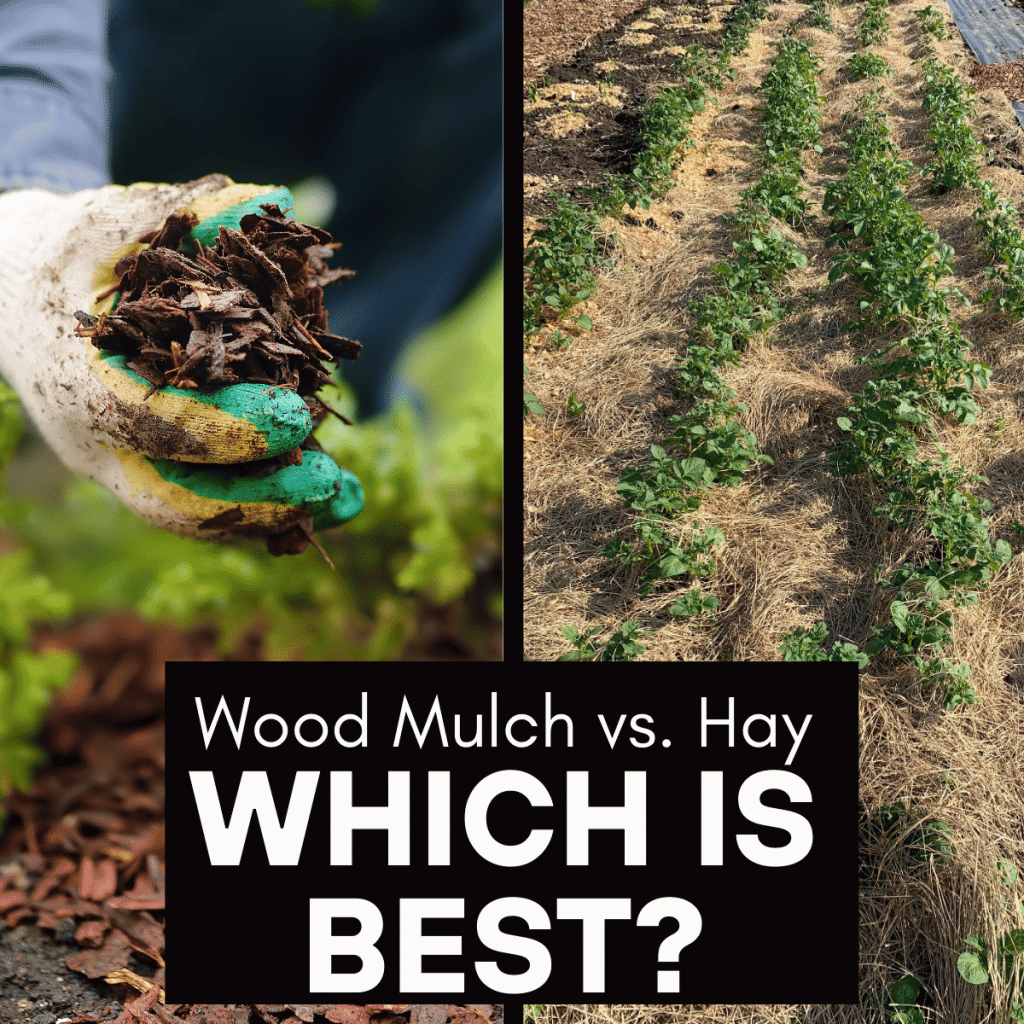
Two of the most popular organic mulches are wood mulch (like bagged wood chip mulch, bark mulch, and arborist wood chips) and hay mulch.
Each offers unique benefits—and a few potential problems—so let’s break down the main differences to help you find the perfect mulch for your garden.
Why the Right Mulch Matters
Mulching is a great way to suppress weeds, regulate soil temperature, retain moisture, and enrich the soil as it breaks down.
Whether you’re going all in on a layered Back to Eden garden, a no-till Ruth Stout garden, or simply trying to reduce soil erosion in your yard, mulch provides essential protection for both your plant roots and the soil surface.
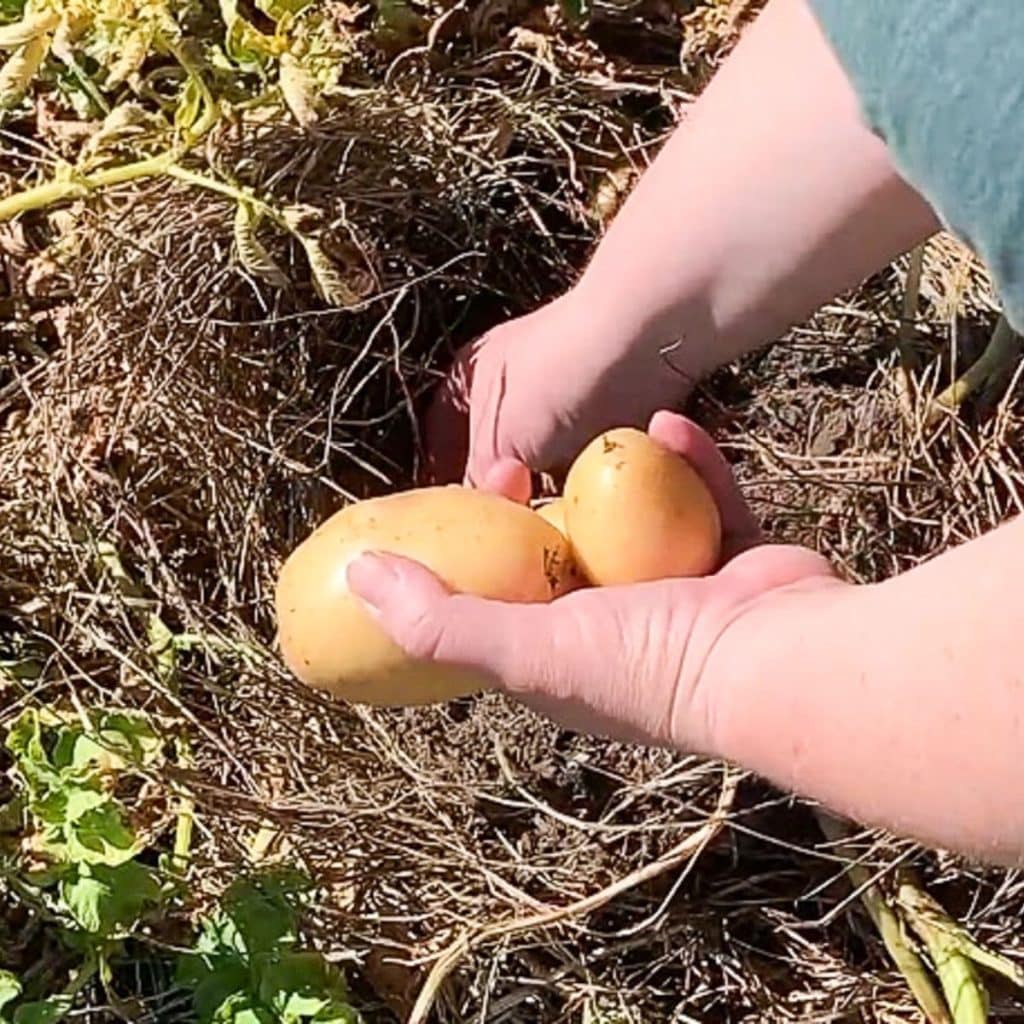
Because choosing the right kind of mulch is so important, I’ve created a free mulching guide to help you quickly select the best option for your space—and learn the best times to apply it. Grab it here.
Wood Mulch: Pros & Cons
Wood mulch includes materials like store bought bagged bark chips, old wood chip piles, and fresh wood chips often sourced from local tree companies or arborists.
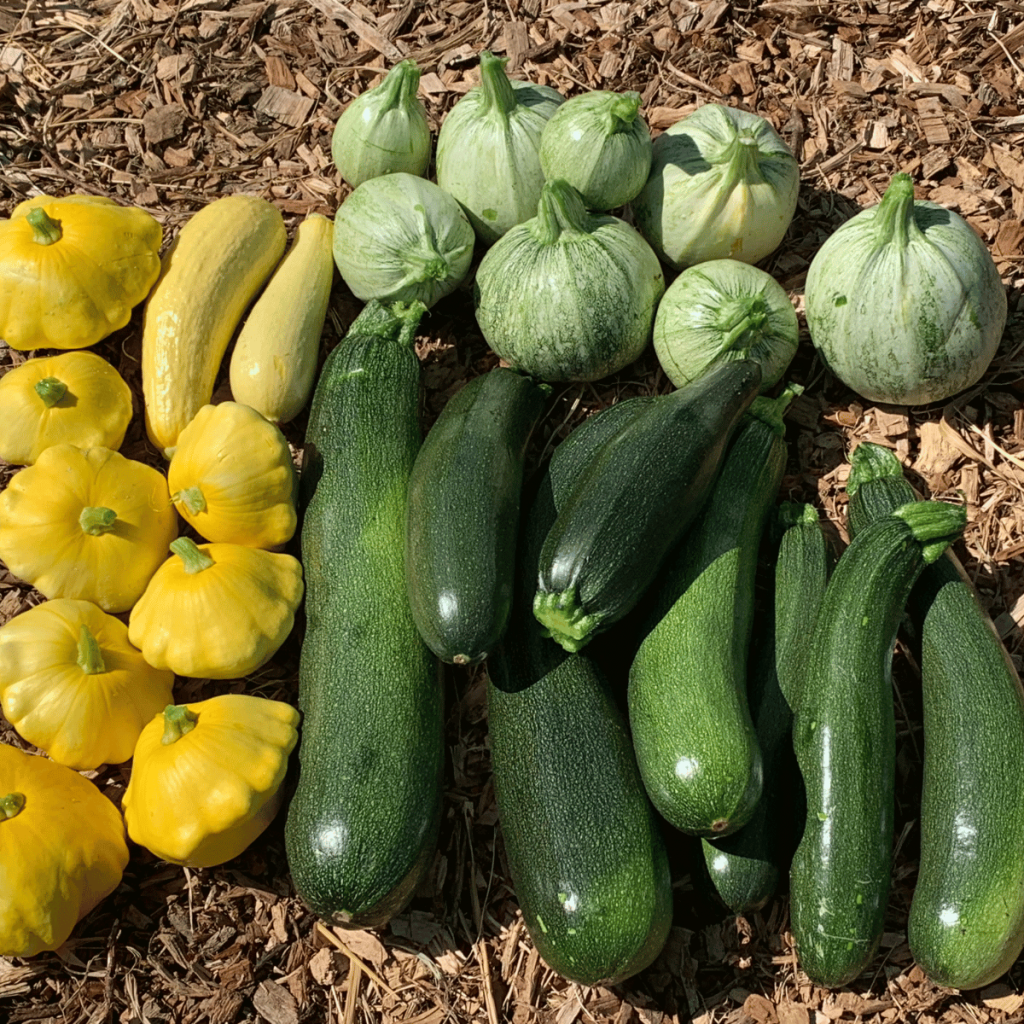
Pros of Wood Mulch
- Feeds the Soil Over Time
As organic matter, wood mulch slowly decomposes, enriching the soil with carbon and nutrients—especially when sourced from deciduous trees. - Moisture Retention
A thick layer of wood chips helps trap moisture in the soil, which is particularly beneficial in sandy soils or during dry spells. - Temperature Regulation
Wood mulch keeps the soil temperature steady, protecting plant roots from extreme heat and cold. - Weed Control
While not as aggressive of a weed suppressant as hay, a thick application of bark mulch or wood chip mulch can suppress weed seed germination and reduce maintenance needs.
Cons of Wood Mulch
- Sourcing Challenges
It can be tough to find good sources of bulk mulch. While free wood chips from arborists are a great use of natural materials, they may come with surprises. - Contamination Risks
Mulch from tree service companies might contain tree branches, green leaves, or even black walnut trees, which release juglone—a compound that inhibits plant growth in many garden plants. - Quality Concerns
Wood chipper mulch may include pieces of poison ivy, noxious weeds, or large, unshredded debris, making it unsuitable for beds with tender crops. - Dyed Mulch or Rubber Mulch
Many commercially sold bark chips are dyed and may contain chemicals, making them a poor choice for organic gardens. Rubber mulch—though popular in playgrounds and public parks—does not break down to enrich the soil or retain moisture the way wood mulch does.
Hay Mulch: Pros & Cons
Hay is another good mulching material often made from various organic materials like dried grasses and legumes. Similar to hay mulch, dried grass clippings from your lawn can provide most all of the same benefits, though hay is a denser, more efficient mulch than lawn clippings.
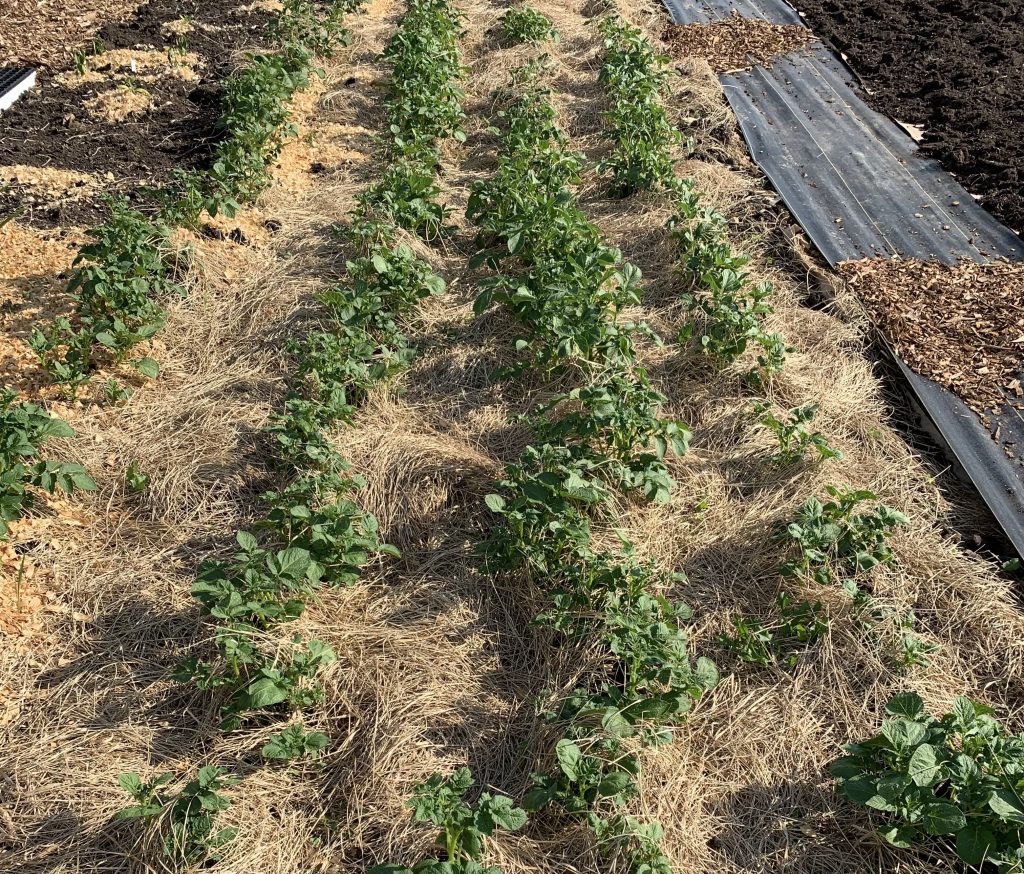
Pros of Hay Mulch
- Weed Suppression
A thick layer—at least 10 inches—acts as a blanket that smothers weeds effectively, making it ideal for weed control. For even better coverage, lay down a layer of cardboard and then top with the hay mulch. - Soil Moisture & Temperature
Like wood mulch, hay conserves a lot of water in the soil and helps stabilize environmental conditions for plant roots. - Affordable & Accessible
If you live in a rural area, hay is often cheaper than other mulches. You can often find good deals on square bales, and round bales offer even more coverage if you have the equipment needed to move them. - Nutrient-Rich as It Breaks Down
As hay decomposes, it adds nitrogen and other nutrients to your garden, feeding plant growth with every season.
Cons of Hay Mulch
- Weed Seed Concerns
One of the biggest drawbacks is the potential for weed seeds hiding in the hay. If you layer the hay thick enough, it should prevent the seeds from germinating. Even if they do sprout, the seedlings are super easy to pick out of the hay when little. - If you have chickens, my favorite tip is to let the hens scratch through the hay first. They will eat the seeds and leave you with clean (and possibly fertilized) hay to use in the garden!
- Herbicide Contamination
Some hay has been treated with persistent herbicides like Grazon, which can linger in the soil and harm your crops for years. Always inquire about chemical use before sourcing hay. - Urban Access & Storage
In cities or small yards, hay can be tough to find and store. Plus, you’ll need multiple square bales or equipment for round bales to thickly mulch your garden.
Which Mulch Should You Choose?
There’s no one-size-fits-all answer. The type of mulch you choose depends on your space, availability, climate, and gardening goals.
- If you want long-term moisture retention and low maintenance, wood chip mulch or bark mulch from arborist wood chips can be a solid choice—just vet your source carefully.
- If you’re focusing on weed control and feeding your soil fast, hay mulch applied deeply is hard to beat—especially in a no till Ruth Stout style garden setup.
Want more help deciding? Check out my article on the best mulch for strawberries to learn how different mulches impact seed germination, fungal diseases, and soil conditions in delicate crops.
Whether you choose hay mulch or wood mulch, using natural materials to protect and feed your garden is always a great way to boost health, reduce weeding, and support plant growth through every season.
The key is choosing good sources, applying a thick layer, and keeping an eye on environmental conditions that affect decomposition and moisture retention.
Get My Free Mulching Guide for Every Garden
Want a cheat sheet for choosing the right mulch based on your garden’s needs, season, and soil type?
DOWNLOAD MY FREE MULCHING GUIDE:
This printable guide includes tips on sourcing organic mulches, avoiding potential problems, and applying mulch for best practices—from grass clippings to bark of trees.
Read More About Mulching:
- Best Mulch for Strawberries
- Using Hay as Mulch
- Using Grass Clippings as Mulch
